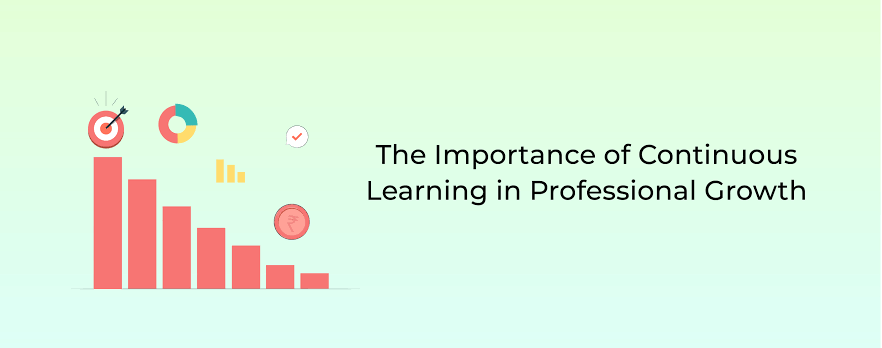Continuous learning and growth have become essential in today’s ever-changing world. With rapid technological advancements, shifting job markets, and evolving industries, individuals can no longer rely solely on past knowledge or a single qualification. In 2025, staying competitive and relevant requires a commitment to lifelong learning, both personally and professionally.
Continuous learning is not just about acquiring new skills; it is about developing a growth mindset that encourages curiosity, adaptability, and resilience. By consistently seeking knowledge and experiences, individuals can navigate challenges, unlock new opportunities, and achieve long-term success.
Why Continuous Learning is Important
Continuous learning is the foundation of personal and professional development. It helps individuals stay updated with current trends, adapt to changes, and improve their problem-solving abilities. In the workplace, employers increasingly value individuals who show a willingness to learn and grow, as they are more likely to contribute innovative ideas and solutions.
Moreover, continuous learning boosts confidence. When people expand their skillsets and knowledge base, they feel more equipped to handle new challenges and responsibilities. It also fosters creativity and critical thinking, which are highly valued in today’s dynamic environment.
The Role of Technology in Continuous Learning
The digital age has revolutionized how we learn. Online courses, e-learning platforms, webinars, and virtual workshops make education more accessible than ever. Platforms like Coursera, LinkedIn Learning, and Udemy allow individuals to upskill at their own pace and explore a wide range of topics from coding to leadership development.
In addition, emerging technologies like artificial intelligence and virtual reality are creating immersive learning experiences. For example, virtual reality simulations allow learners to practice complex tasks in a safe and controlled environment, while AI-powered tools offer personalized learning paths.
Key Benefits of Continuous Learning
- Career Advancement: Ongoing learning helps individuals remain competitive in their industries and opens doors to new career opportunities.
- Increased Adaptability: In a fast-changing world, those who learn continuously can easily adjust to new technologies and work environments.
- Personal Growth: Learning new skills or exploring new interests enriches life experiences and fosters a sense of accomplishment.
- Stronger Problem-Solving Skills: Exposure to new ideas and perspectives enhances critical thinking and decision-making abilities.
How to Embrace Continuous Learning
1. Develop a Growth Mindset
A growth mindset encourages viewing challenges as opportunities to learn. Embrace mistakes as part of the learning process and remain open to feedback.
2. Set Clear Learning Goals
Identify areas you want to improve and set specific, measurable goals. This helps create a structured approach to learning and makes progress easier to track.
3. Leverage Online Resources
Take advantage of online courses, podcasts, and educational content. Many resources are free or affordable, making continuous learning accessible to everyone.
4. Join Professional Networks
Engaging with communities, attending seminars, or participating in workshops can provide valuable learning experiences and insights from industry experts.
5. Dedicate Time for Learning
Set aside time each day or week to focus on learning something new. Even 20–30 minutes daily can lead to significant progress over time.
Overcoming Barriers to Continuous Learning
Time constraints, lack of motivation, or financial limitations can make continuous learning challenging. However, breaking learning into small, manageable steps and using free or low-cost resources can overcome these barriers. Maintaining curiosity and setting realistic goals can also help sustain motivation.
Continuous Learning and the Future
In 2025 and beyond, industries like artificial intelligence, renewable energy, and digital healthcare are evolving rapidly. Professionals who invest in continuous learning will have a competitive advantage as they can adapt to these emerging fields. Organizations are also prioritizing learning and development programs to keep their workforce agile and innovative.
Conclusion
Continuous learning is a powerful tool for both personal fulfillment and professional success. By cultivating a growth mindset, setting clear goals, and embracing new technologies, individuals can thrive in a rapidly changing world. It is not just about staying relevant but about continuously evolving to reach one’s full potential.



